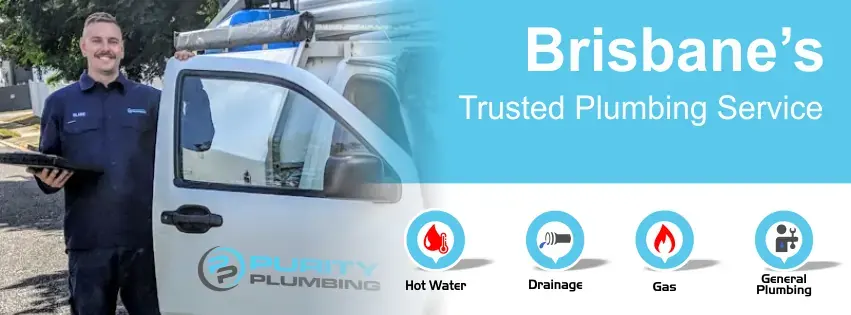What is the Most Efficient Hot Water System?
The convenience of having hot water at our disposal in homes or businesses is often taken for granted and we fail to recognise its importance in our daily routines and tasks. Since every hot water system varies, with some being more efficient than others, it's crucial to consider their efficiency. When we look at the energy consumption of our household we can attribute 15-25% of consumption to our hot water systems.
How to Assess the Efficiency of a Hot Water System?
Determining the most efficient hot water system depends on various factors, including energy sources, usage patterns, and climate. When it comes to choosing the right system based on your specific efficiency requirements it's advisable to look for relevant labels, ratings, and certifications as this information will help you make an informed decision
Energy Factor (EF) - For electric and gas storage tank water heaters, the Energy Factor (EF) is a crucial metric. It represents the overall efficiency of the system, taking into account factors like standby heat loss and recovery efficiency. A higher EF indicates better efficiency.
Uniform Energy Factor (UEF) - UEF is the efficiency rating used for tankless (on-demand) water heaters. Similar to EF, a higher UEF signifies better overall efficiency.
First Hour Rating (FHR) - FHR is relevant for storage tank water heaters and represents the amount of hot water a unit can provide in the first hour of use. This factor considers the tank's capacity, recovery rate, and standby losses.
Energy Star Certification - Look for the Energy Star label, which indicates that the hot water system meets or exceeds energy efficiency guidelines set by the U.S. Environmental Protection Agency (EPA). Energy Star-certified products are generally more efficient.
Condensing Technology - For gas water heaters, especially tankless models, check if the unit utilises condensing technology. Condensing systems recover heat from combustion gases, increasing overall efficiency.
Solar Thermal Performance - If considering a solar water heater, assess its Solar Energy Factor (SEF) or Solar Fraction. These metrics gauge the system's ability to utilise solar energy effectively.
Thermal Efficiency for Heat Pump Systems -Heat pump water heaters are rated based on their Coefficient of Performance (COP) or Thermal Efficiency. A higher COP indicates greater efficiency.
Efficiency Ratings for Combi Boilers - Combi boilers are rated based on their AFUE (Annual Fuel Utilisation Efficiency) for space heating and their efficiency for providing hot water.
Factors Worth Noting:
No matter what type of system you’re considering, electric, gas, heat pump or solar-powered, you’ll need to decide between a storage-based heater or an instantaneous/continuous flow unit. Generally, you will find the cheaper models in either of these options to be more inefficient while the more expensive options will often have greater energy efficiency. The two options for hot water systems are
- Storage tank heaters use a gas flame to heat the water stored in a tank as it is needed.
- Instantaneous systems don’t use a tank and instead heat the water only when it is being used.
Overview of Hot Water System Options:
Tankless On-Demand Water Heaters -These systems are highly energy-efficient because they only heat water as needed, eliminating standby heat loss associated with storage tank water heaters.
Heat Pump Water Heaters - By extracting heat from the air or ground, heat pump water heaters can be more energy-efficient than traditional electric water heaters. Heat pump water heaters are highly efficient and use 30% less energy than a conventional electric water heater. These systems use a refrigeration cycle to extract heat from the air to heat the water.
Solar Water Heaters - Solar water heaters harness energy from the sun, making them environmentally friendly and cost-effective in the long run, especially in sunny climates. Solar hot water systems are deemed to be the most energy-efficient hot water system available and also have low operating costs
Condensing Water Heaters - These units are designed to recover and utilise heat from flue gases, making them more efficient than standard tank-style water heaters.
Combination Boilers (Combi) - Combi boilers can be highly efficient, as they provide both hot water and space heating from a single unit, reducing energy waste.
High-Efficiency Gas Water Heaters - Some gas water heaters are designed with high-efficiency features, such as condensing technology, to optimise energy use.
Energy Source Determines Efficiency
- Electric powered - Generally these are the least energy efficient of the water heating options, unless the electricity comes from a renewable source. You can however look at opting for off-peak rates, and speak to your energy provider for more information.
- Gas-powered - Natural gas heaters are more energy efficient than LPG.
- Heat pump hot water systems - Up to three times more efficient than an electric hot water system.
- Solar-powered - Though they are among the most expensive to purchase, they are arguably the most energy-efficient water heating solution for the home. By using the sun's energy as a power source you are also assisting in reducing greenhouse gas emissions.

If you need support with your home or business hot water heating needs, we're here to assist. Purity Plumbing can evaluate your requirements and offer professional services and guidance concerning a hot water system that matches your efficiency goals. Phone 1300 854 195 to speak to one of our friendly and experienced plumbers.